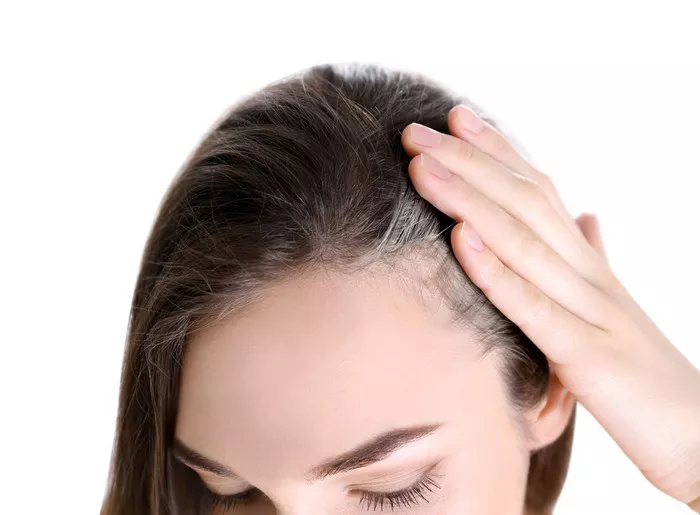Hair fall is a common concern for many individuals, and it seems to intensify during the autumn months. But what is the reason behind this seasonal phenomenon? In this comprehensive article, we’ll delve into the factors contributing to hair fall during the fall season. We’ll break it down into several key aspects and provide detailed insights and tips to help you better manage and prevent excessive hair fall during this time.
1. Seasonal Changes and Hair Fall:
Autumn is notorious for hair fall, and understanding the reasons behind it is crucial for effective management.
1.1. Hormonal Fluctuations:
Hormonal changes are one of the primary culprits behind hair fall during the fall. As the days get shorter and exposure to sunlight decreases, our bodies produce more melatonin, a hormone that regulates sleep patterns. Unfortunately, this hormonal shift can also affect hair growth, leading to an increased rate of hair shedding.
1.2. Nutritional Deficiency:
In the fall, the variety of fresh fruits and vegetables available tends to decline, which can impact our nutrition. Deficiencies in essential vitamins and minerals, such as vitamin D and iron, can weaken the hair follicles, making them more susceptible to shedding.
1.3. Stress and Seasonal Affective Disorder:
The transition from summer to fall can be emotionally taxing for many people. Seasonal Affective Disorder (SAD) is common, and stress levels tend to rise. High-stress levels can disrupt the natural hair growth cycle, leading to hair fall.
2. Managing Hair Fall During Autumn:
Now that we’ve identified the primary causes, let’s explore some practical ways to manage hair fall during the fall season.
2.1. Balanced Diet:
To counteract nutritional deficiencies, focus on a well-rounded diet rich in vitamins and minerals. Include foods like leafy greens, nuts, and lean proteins to promote hair health.
2.2. Hair Care Routine:
Switch to a gentle, sulfate-free shampoo and conditioner to minimize damage to your hair. Avoid excessive heat styling and tight hairstyles that can stress the hair shaft.
2.3. Vitamin Supplements:
Consider consulting with a healthcare professional about taking supplements to address specific deficiencies. Vitamin D and iron supplements can be particularly beneficial.
2.4. Stress Management:
Practicing stress-reduction techniques such as yoga, meditation, or exercise can help maintain a healthy hair growth cycle.
3. Hair Fall and Environmental Factors:
Environmental factors play a pivotal role in hair health during the fall season.
3.1. Humidity Levels:
As the weather becomes drier in the fall, it’s essential to keep your hair and scalp adequately moisturized. Use a good-quality conditioner and consider a humidifier for your living space.
3.2. Heat Styling Precautions:
While we tend to use heat styling tools year-round, it’s particularly important in the fall to use a heat protectant spray and not to overuse these tools to prevent damage and breakage.
4. Professional Help and Treatment Options:
If your hair fall is severe and persistent, it’s wise to consult with a healthcare professional or dermatologist.
4.1. Topical Treatments:
Dermatologists can prescribe topical treatments or recommend over-the-counter solutions to stimulate hair growth and reduce hair fall.
4.2. Hair Restoration Procedures:
For more severe cases of hair fall, various hair restoration procedures such as hair transplants or platelet-rich plasma (PRP) therapy can provide effective solutions.
5. Maintaining a Positive Mindset:
Hair fall during the fall season is often temporary and reversible. Stay positive and maintain healthy practices.
5.1. Patience is Key:
Remember that hair growth and shedding are natural processes, and some hair fall is to be expected.
5.2. Self-Care:
Take care of your overall well-being by getting enough sleep, staying active, and maintaining a positive outlook. A healthy body often results in healthy hair.
See Also: 5 Best Wella Shampoo for Hair Fall: An Ultimate Guide
In conclusion
Understanding why hair fall increases during the fall season is essential for anyone experiencing this common issue. It is a combination of hormonal changes, nutritional deficiencies, and increased stress levels. By following a balanced diet, adopting a suitable hair care routine, and managing stress, you can significantly reduce hair fall during the fall. In more severe cases, seeking professional advice and treatment options is recommended. Remember, maintaining a positive mindset is crucial, as hair fall during the autumn months is often a temporary concern that can be managed effectively with the right approach.


